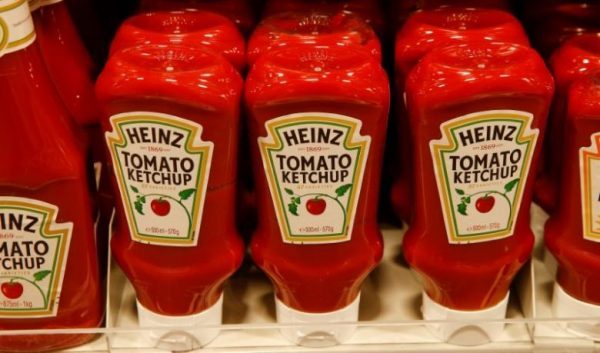
In the populist age of President Donald Trump – when CEOs are routinely hauled to Washington and browbeaten on live television over an America-first jobs agenda – it makes perfect sense for Kraft Heinz to shock Wall Street and take its ruthless deal-making abroad.
On Friday morning, Kraft Heinz said it has made an unsolicited takeover offer for Anglo/Dutch consumer products giant Unilever, a surprise move that would yield one of the biggest corporate acquisitions in history at a value of around $143 billion. Unilever said in a statement it has rejected Kraft Heinz’s cash and stock offer because it “fundamentally undervalues Unilever.” The company further “sees no merit, either financial or strategic, for Unilever’s shareholders” and “does not see the basis for any further discussions.”
Kraft Heinz is backed by Berkshire Hathaway and it is run by Warren Buffett’s favorite deal-making partner, Brazilian private equity firm 3G Capital. Four years ago, Buffett and 3G Capital partnered on a $28 billion takeover of Pittsburgh-based ketchup giant Heinz. Within two years 3G Capital partner Bernardo Hees, Heinz’s CEO, oversaw a dramatic improvement in the ketchup-maker’s profitability.
Through plant closings, job cuts, and a ruthless focus on costs, 3G Capital increased Heinz’s earnings before interest, taxes, depreciation and amortization (EBITDA) by 35% to $2.8 billion, or 800 basis points, in two years’ time. Then 3G Capital sets sights on a new target, buying Kraft Foods for nearly $40 billion in March 2015. Again came a steady beat of plant closings, job cuts, and increased profits. In the fourth quarter, Kraft Heinz saw its operating income surge 22% year-over-year, despite a 3.7% decline in net sales and modest 1.6% increase in organic sales.
Wall Street always expected Kraft Heinz, the 3G Capital and Warren Buffett deal-making machine, would chug onward. However, the most likely potential acquisition was seen as Mondelez, once a piece of Kraft Foods and currently undergoing a cost-cutting program under CEO Irene Rosenfeld, which mimics 3G Capital’s bottom-line discipline. Other rumored deal targets were General Mills, Kellogg’s, Campbell’s Soup, or even Hershey.
But the optics of office closings and newly unemployed workers in Illinois, Minnesota, Michigan and Pennsylvania, where these companies are headquartered, would have been extremely poor. Perhaps President Trump would see a Brazilian-backed private equity firm squeezing out billions of dollars in costs – and jobs – from an American consumer icon as the epitome of the economic “carnage” he is attempting to halt. (Kraft Heinz declined to comment on this premise.)
It is a surprise that Kraft Heinz has set its sights on Unilever, one of Europe’s largest conglomerates, with brands ranging from Axe deodorant to Hellmann’s mayonnaise, Dove soap, Ben & Jerry’s ice cream, SunSilk razor blades and Sun dishwasher fluid. But this may be a savvy maneuver. Not only would a deal avoid the wrath of Trump, it also takes advantage of the sharply tumbling euro and British pound in the wake of Brexit, and a strengthening U.S. dollar.
Kraft Heinz’s fast-rising stock and its cash may have allowed its deal backers to set their sights higher than soup or cereal. Kraft Heinz has offered $50 a share for Unilever, split between $30.23 a share in cash payable in U.S. dollars and 0.222 shares in the combined company, valuing its target at $143 billion. While that offer amounts to a 18% premium, it is a take-under from year-ago levels when accounting for foreign exchange. This bid, Unilever believes, is a nonstarter.
But Unilever shouldn’t underestimate Kraft Heinz, and there is likely a winning deal to negotiate. After all, the reason Kraft Heinz is able to target powerhouse Unilever traces back to the home-run merger struck between Heinz and Kraft Foods.
In that deal Heinz offered Kraft Foods shareholders 49% of the combined company and paid only a fraction of the acquisition price in cash. It meant Kraft Foods shareholders would benefit mightily if the Buffett/3G duo succeeded in creating value. Better yet the stock financing kept the combined company underleveraged, offering the financial flexibility to make new deals. On both fronts, shareholders did extremely well. Kraft Heinz has performed strongly in its time on public stock markets; its shares are surging anew on Friday due to deal fireworks. Unilever’s board of directors now stands in a similar position as Kraft Foods’ board did when negotiating with Heinz.
Kraft Heinz’s offer sets the stage for a process that may unfold over a matter of months. It has until mid-March to make a formal bid for Unilever and 3G Capital is familiar with large and hostile cross-border deals. In October, 3G-backed Anheuser-Busch completed a takeover of SAB Miller in what was one of Europe’s biggest-ever corporate mergers.
Warren Buffett and 3G Capital are the most formidable deal-making duo in the history of Wall Street and Kraft Heinz shares are a currency that one day may swallow a major chunk of the consumer products industry. Restaurant Brands International, the owner of Burger King and Tim Horton’s, is another Buffett and 3G Capital roll-up. Anheuser-Busch was 3G’s original acquisition masterpiece.
For now, it appears Buffett and 3G Capital are taking their money abroad. It may be a savvy calculus that both avoids Trump and benefits from a strengthening dollar and continued malaise in European markets.
FORBES

Leave a Reply
You must be logged in to post a comment.